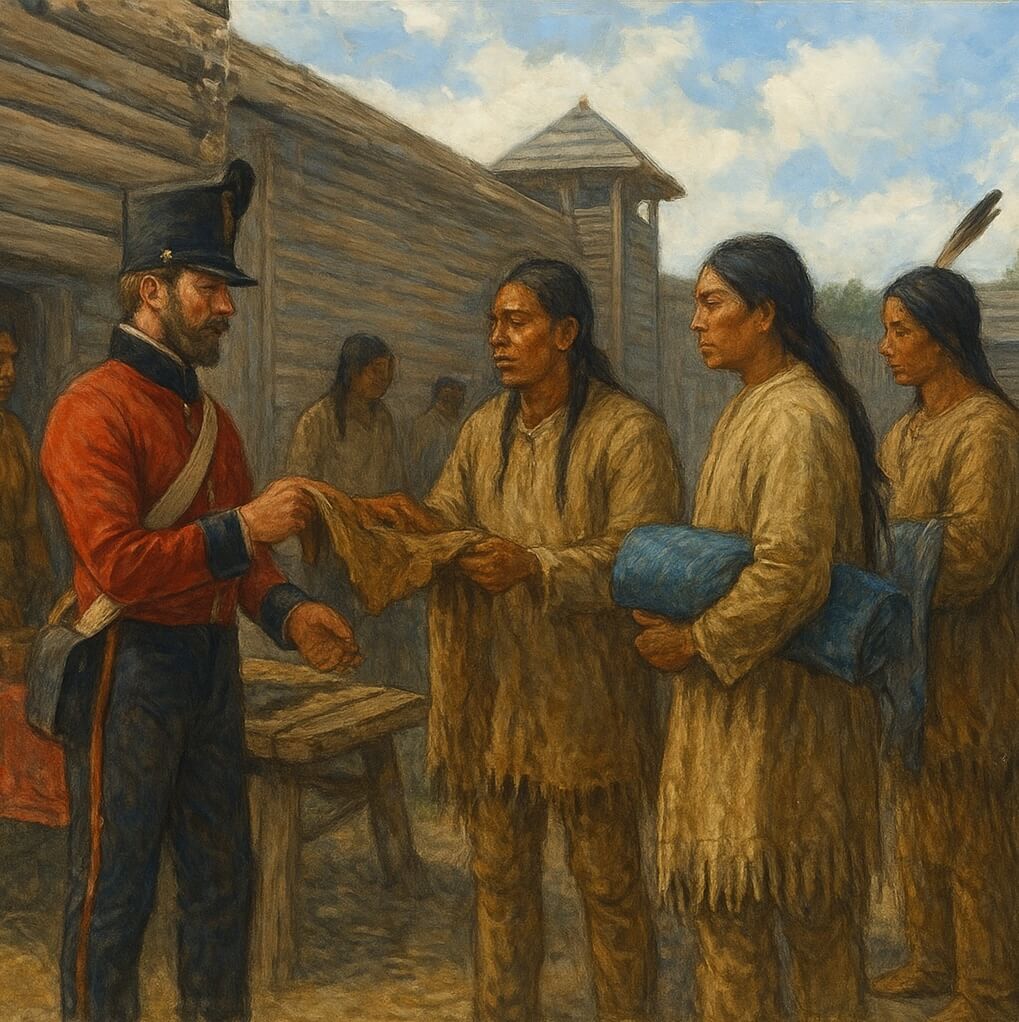Anyone else ready for the weather to change so you can blow the dust off your tent?
The following is a compelling list of reasons to grab your tent/hammock/tarp and head for the hills.......
1. YOU CAN ESCAPE ASTHMA-INDUCING AIR POLLUTION.
Whether or not you live in a city, there’s a good chance that the air you’re breathing every day isn’t exactly fresh. The United States’ Environmental Protection Agency (EPA) has identified air pollution as one of the primary causes of asthma and other breathing-related issues affecting nearly 30 million people in the United States alone. While the Clean Air Act, originally established in 1963, has done much to improve the air pollution in the United States (particularly in large, urban centers), evidence still suggests that air quality, even in suburban neighborhoods, doesn’t match the air we take in when we escape to the wilderness.
The Environmental Pollution journal makes the case that being in the presence of trees and natural wilderness (as most of us are when we’re camping for a weekend) improves air quality far beyond what a purifier can do in an urban or nature-depleted environment.
In short, your lungs are craving the campground.
2. YOUR CIRCADIAN RHYTHM PROBABLY NEEDS IMPROVEMENT.
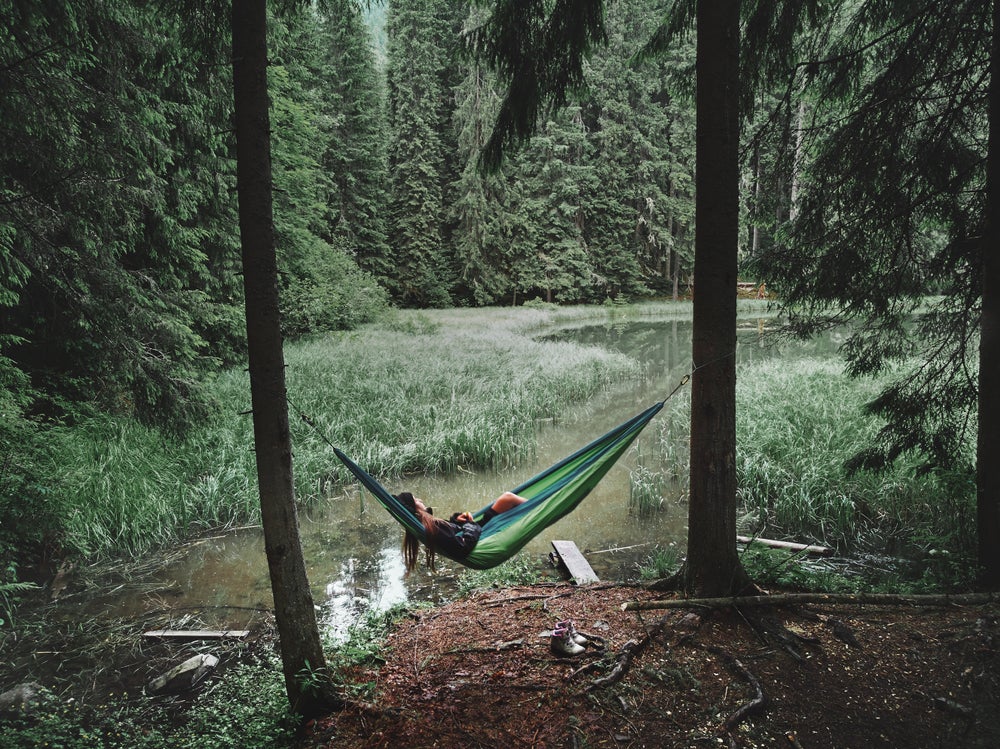
Trying to sleep while camping can often be the least-relaxing part of the adventure. All it takes is a pinhole in a sleeping pad and you’ve got yourself a weekend of sleeping directly on the hard ground.
But with the right gear and preparation, camping can actually improve your sleep quality and, as previous studies have suggested, improve your natural circadian rhythm.
Even in neighbourhoods far removed from heavy light pollution, our circadian rhythms are consistently thrown off by the presence of electricity, digital devices, and inconsistent sleep patterns. In fact, as the National Sleep Foundation attests, only 1 in 10 Americans list sleep as a priority among other commitments such as fitness and nutritional health. Yet, among working adults, sleep has a documented impact on both personal achievement and overall happiness, and over 65% of adults admit that their effectiveness is tied in some way to how much sleep they’re getting.
Our recommendation: don’t skimp on the sleeping gear. Especially if you’re car camping, don’t be afraid to bring that inflatable mattress along, or a couple of sleeping pads to stack on top of each other. Once you’ve nailed down your cozy requirements, indulge in a night of sleep in the (relative) solitude of the outdoors. You’ll be amazed at what a couple nights unhindered by the blue light of a computer or television screen will do for your body and mind.
3. RELIEVE THE BIGGEST HEALTH STRUGGLE WE FACE: STRESS.
Fortunately, one of the most valuable benefits of camping is also one you don’t have to work too hard to achieve.
The American Institute of Stress reported that over 60% of Americans in 2017 claimed that stress related to work was the most common source of angst in their lives. Second only to money and the future of America, it’s clear that the work week, even at the most successful of companies, takes a toll on the human psyche.
Whether or not you love your job, ignoring the chronic stress that arises out of life’s mundane commitments (bills, etc.) can be detrimental to your mental, physical, and emotional health. Though not a replacement for a therapist, a camping trip can do wonders for the stress levels in the body, as it allows you ample opportunities to escape the bind of schedules, itineraries, and required tasks, and to refocus on the important things in life: when it’s time to fish, to hike, or most importantly, to build a campfire and then do nothing at all.
4. DID WE MENTION DOPAMINE? YOU NEED IT.
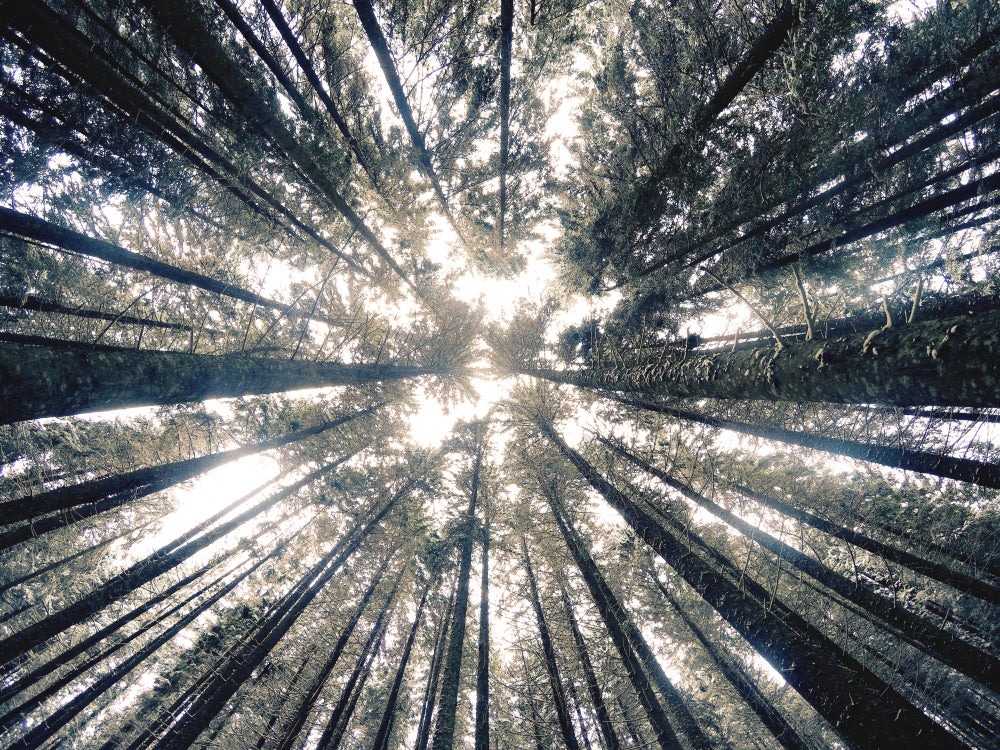
The science of dopamine shows us that it’s easy to get caught in artificial dopamine-feedback loops, where our brains are trained to adapt to habits that aren’t necessarily helpful or healthy. Whether it’s due to work, a dependency on technology, or the desire to unwind at the end of a long day, we can do a lot of damage to our dopamine receptors simply by remaining unchanged in our sedentary habits.
The human body craves movement and nature in order to refresh its capacity for memory, mindfulness, and overall energy levels. One of the benefits of camping is that it helps to retrain those neurotransmitters by reinforcing healthy habits like hiking, meditating, or simply spending time connected to nature. Humans are biologically wired to crave natural scenery, so even a weekend-long camping trip will do wonders for your soul and your brain.
5. REDUCING INFLAMMATION CAN IMPROVE YOUR MOOD AND YOUR OVERALL HEALTH.
Recent medical studies have shown that inflammation levels in the body have risen at alarming rates in the last 15-20 years, particularly in the United States.
Although there are a variety of causes for this (including genetics), a primary trigger is an unhealthy lifestyle and diet. Camping is scientifically proven to reduce oxidative stress, as it encourages an active lifestyle and reduces your level of exposure to environmental pollutants, which are a key factor in the development of free radicals that cause oxidative cell damage. Being outside on a consistent basis and avoiding the city for a weekend helps your body to recover from stress symptoms while also reducing the levels of inflammation throughout your system.
6. “YOU TIME” IS ESSENTIAL TO YOUR WELL-BEING.
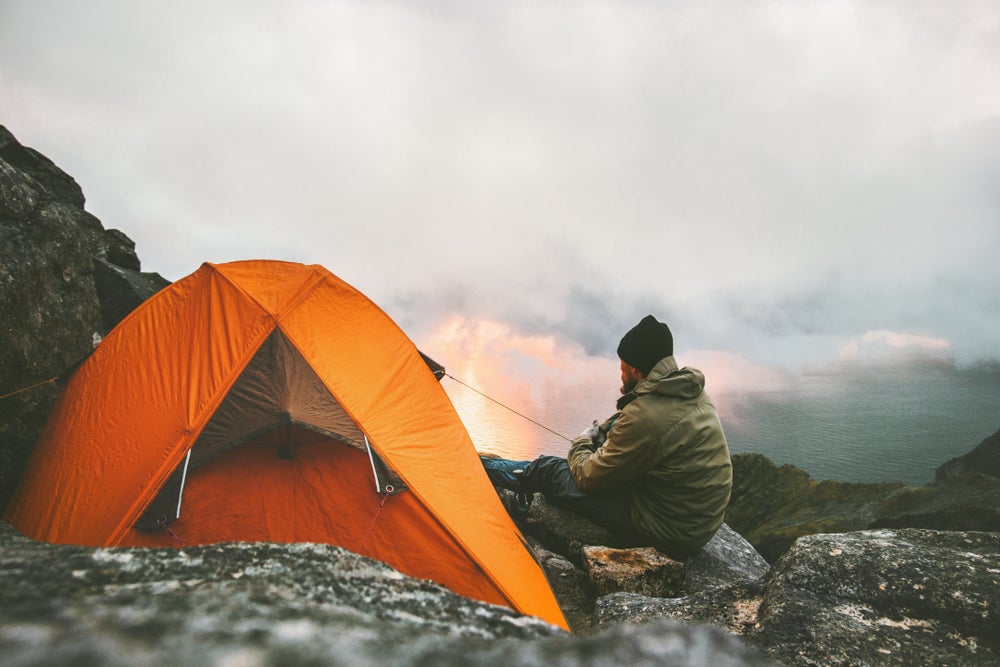
Whether or not we admit it, everyone needs the time and space to become self-aware, and frankly, the opportunities to do that in the modern world are scarce at best.
In an article in The Atlantic in 2017, California State Polytechnic University sociologist Jack Fong asserts that the value of solitude, while stigmatized in modern society, can actually be an important part of developing positive psychological patterns. “For Fong, who meditates 15 minutes a day and takes monthly solo camping trips, it is at least as essential as exercise or healthy eating. Possibly, he says, it is necessary for a truly healthy mind. ‘It really lifts you out of problems. It really, really has a powerful function for making you understand your predicament in this universe,’ he says.”
As Fong attests, camping, especially solo camping (if you’re game), can function as a type of self-care retreat, where you’re able to truly process and ponder the things that have been weighing on both your mind and body. At a loss for how to treat yourself to a dose of the outdoors? Try hiking to an alpine lake or visiting a quiet trail for a meditative walk through the woods.
7. VITAMIN D GIVES YOU ENERGY.
Recent research suggests that vitamin D deficiency affects over 40% of Americans. Chances are, if you live in a region where seasonal weather is especially varied, you’re among this growing number of Americans. Commonly associated with sunshine, Vitamin D plays a key role in helping the body absorb calcium, which promotes strong bone growth and helps maintain healthy cells. While the body makes Vitamin D on its own, it only does so after your skin absorbs enough sunlight, which is why getting outdoors can be so beneficial to your overall health.
Apart from the other obvious benefits of camping and being outdoors, the vitamin D combined with the lack of artificial light can increase your energy while restabilizing your vision, your mind, and your overall stress levels. Particularly after a long week at work, or after the often cloudy winter season, camping can be a great way to replenish your body’s critical vitamin D levels.
8. YOUR BARE FEET NEED TO TOUCH THE EARTH.
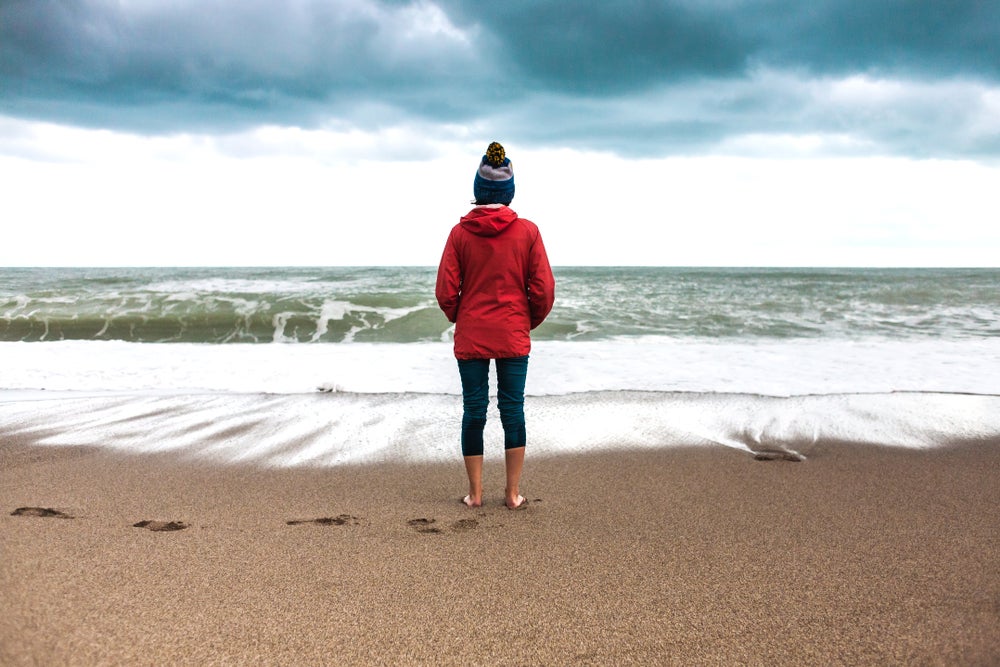
In an article published in the Journal of Environmental and Public Health, researchers suggest that the act of grounding oneself can have beneficial effects on both the psychological well-being and overall health. It’s not so much the feeling of it that’s healthy, but the fact that the Earth contains an infinitely self-replenishing supply of free electrons, which have the potential to establish a “stable internal bioelectrical environment for the normal functioning of all body systems.”
We’re not scientists, but we can confidently say that there’s something about your feet touching the earth that just makes you feel different. Whether it’s relaxation, energy, or a combination of both, camping is the perfect time to forget about tracking dirt in the house and to take a walk through the wild with nothing but your bare soles. Go ahead. Get your feet wet.
9. YOU CAN RECONNECT WITH YOUR WILD SIDE BY EATING FRESH FOODS.
While not all camping trips are helpful for those keeping to a strict diet, camping can be a great time to get back in touch with your nutritional values.
Whether through foraging for your own foods or creating your own plant-based recipes, the outdoors is a prime place for investing in a fresh, new lifestyle.
Along with stabilizing your gut health, eating fresh and plant-based foods while in the outdoors can contribute to increased vitamin D levels as well as a reduction of stress, as a major cause of physical stress is linked to diets high in carbohydrates, processed sugars, and alcohol (Stress Management Society). While the temptation to indulge in traditional camping junk food can be difficult to overcome, the campground can also be an excellent place to experiment with some homemade healthy meals, or to prep some award-winning vegan chili, endorsed by members of The Dyrt team!
10. FOREST BATHING IS A FUN WAY TO MEDITATE.
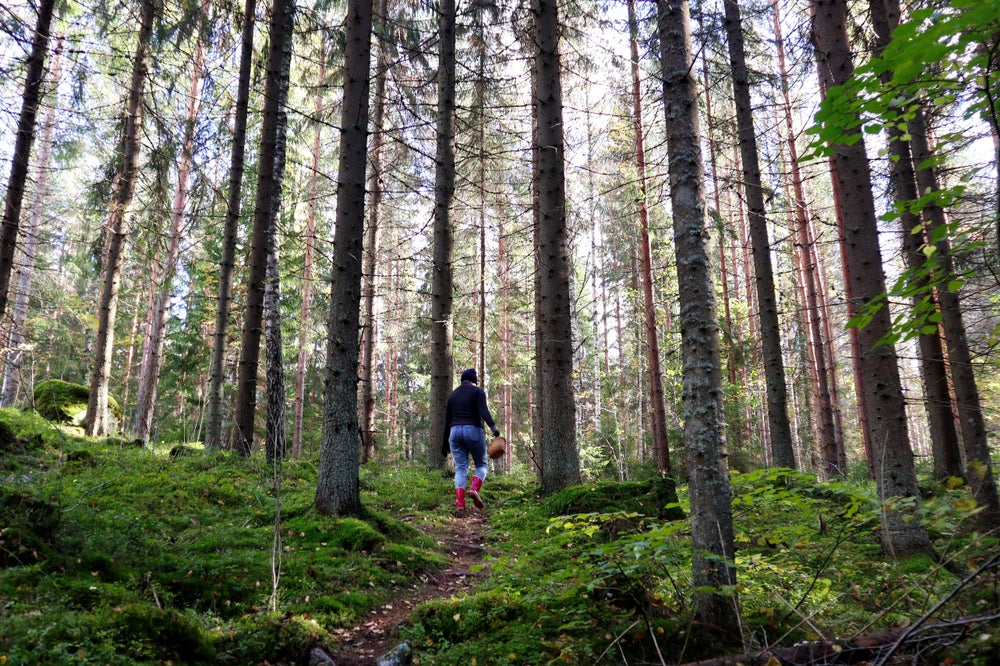
Meditation not your thing? Try forest bathing. Studies have been conducted for years in the Eastern world that attest to the benefits of the regular practice forest bathing. The execution of the concept is quite simple: take a short, relaxed walk through the woods or a densely natured area, and wait for nature to do its thing. After some time alone, chances are you’ll feel recharged and ready to jump back into your normal activities. Better yet, take your nature walk in bare feet and get grounded as you bathe in the forest air!
11. ENGAGING YOUR MUSCLES MAKES YOU FEEL BETTER.
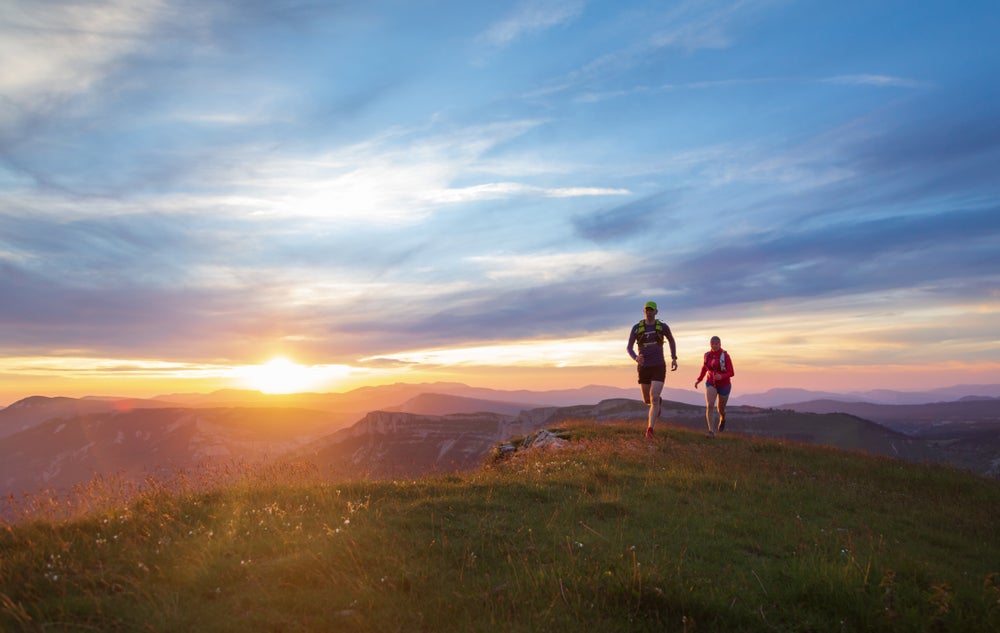
A camping trip that combines exercise with being outdoors is sure to improve your overall well-being. Although most adults agree that exercise is a priority, most working Americans admit that work, family, and the exhaustion of the day-to-day often make regular fitness a non-reality (Time Magazine Fitness Guidelines). Even if you’re already a fitness junkie, getting away from the treadmill and into the outdoors for a trail run or a hike will add some much-needed variety to your exercise routine.
13. STOP NOTIFICATIONS FROM TURNING YOU INTO A ZOMBIE.
It is becoming increasingly clear that the amount of technology we’re confronted with on a daily basis is affecting both our short-term memory as well as our ability to interact with others. Blue lights from screens interrupts circadian rhythms, and the constant influx of notifications is listed as one of the top disruptors of sleep, according to the National Sleep Foundation’s infographic on Electronics and Sleep.
Camping provides a healthy and necessary respite from technology in a way that encourages physical activity, overall health, and human connection.
Not sure you can last a whole weekend without your device, or have a family member you need to keep in touch with? Try a daily “check-in” time (preferably limited to around 20 minutes) during which you can keep tabs on your email, check-in with a friend, or answer a call or two, then put the phone away for the day. If you’re an avid music listener, try downloading your tunes in advance and putting your device on airplane mode.
14. TRYING NEW THINGS KEEPS YOU STIMULATED AND INSPIRED.
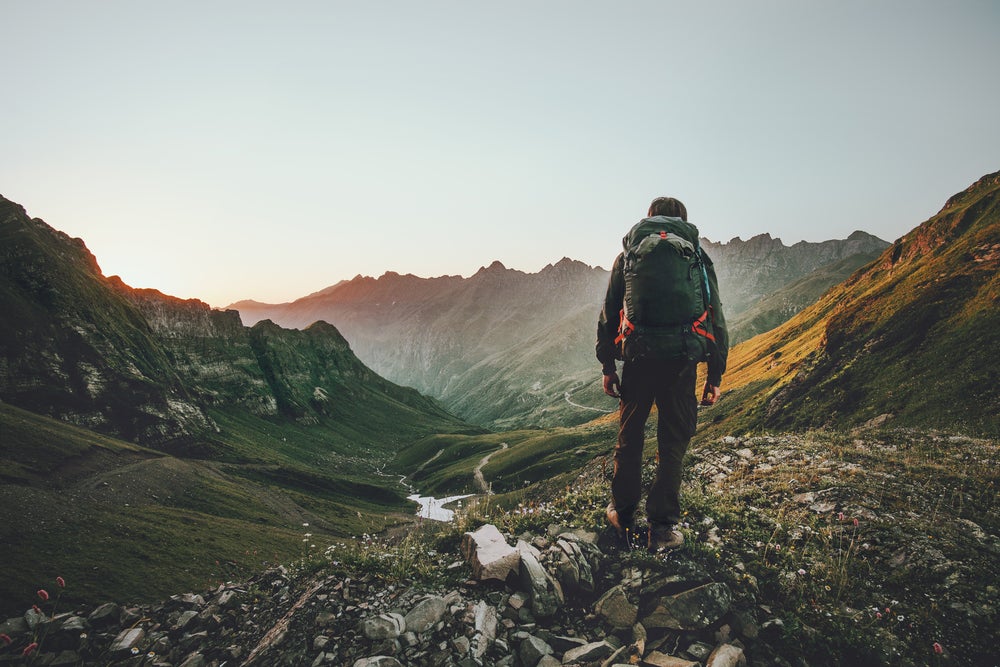
Maybe you haven’t camped in 20 years, or camping was never really on your radar. Whether you’re experienced or a newbie in the outdoors, camping offers the opportunity for you to stretch out of your comfort zone in one way or another, whether through taking that long hike you’ve been dreading, or cooking your own fresh caught fish over a campfire.
Chances are, you’ll find yourself invigorated by the challenges, and inspired to do more in the outdoors or even in your day-to-day life.
14. PROBLEM SOLVING IS LIKE PROTEIN FOR CREATIVITY.
If you feel like your job (or life in general) puts pressure on you to be more productive rather than creative, you’re not alone. In a 2012 study of 5,000 adults, 75% of them felt they were not living up to their creative potential.
Good news. There isn’t much to get done once you’ve set up camp and built a fire. But have you ever had a tent pole break in the middle of setting it up or lost the only lighter you brought along? Here’s your chance to flex those creative muscles.
Unexpected events happen all the time in the outdoors, and camping encourages us to get creative with our limited options and gear. Whether to solve a problem or to come up with a new game to play that doesn’t involve a screen, camping is an excellent way to get your creative juices flowing. You might even find that that creativity blends into your personal or work life as well, as your brain subconsciously unwinds the threads of problems you’ve been working to solve.
15. THE OUTDOORS ARE CHEAPER THAN A THERAPIST.
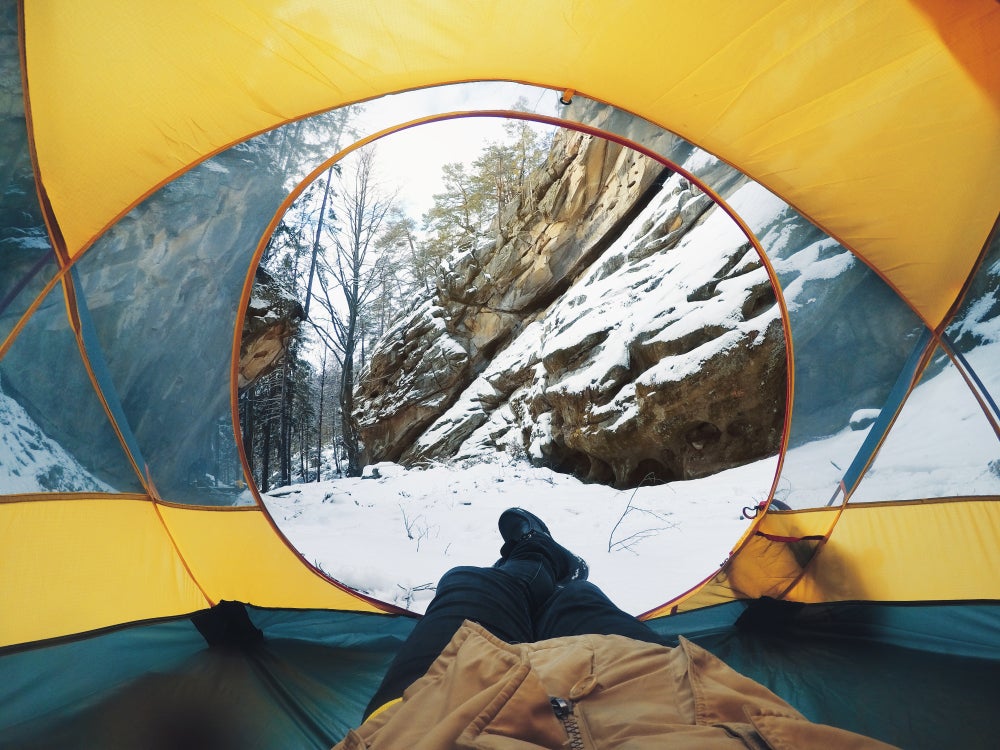
Camping has the power to shine extra perspective on your life and priorities by giving you space and time away from distractions. In the normal world, it’s easy to distract yourself from focusing on what’s most important to you, whether through work, electronics, or social events. Taking time away from your office, technology, your household responsibilities, and even social pressures can do wonders for helping you prioritize your life.
If you’ve found yourself at a loss for your next step, or in a funk with work, friends, and life in general, a weekend getaway should be on the top of your list for things that could help you gain significant and much-needed perspective.
(reproduced in full from www.thedyrt.com)




